Then Terry Elliot
Terry Elliott--I love Oxford commas, iterations, and redundant "t's".
Then Terry Elliot
Terry Elliott--I love Oxford commas, iterations, and redundant "t's".
While you have no tone
Birds come and cry there and twitter in the chimney - But I go for ever and come again no more.
HOME no more home to me, whither must I wander? Hunger my driver, I go where I must.
Another version: https://www.youtube.com/watch?v=VGGSCtY2T9U
Body wracked.
Grey clouds slide out of view.
if the Trump years will spark a new age of protest songwriting …
Wonder no more:
https://www.youtube.com/watch?v=0K7gyTQuuls
https://www.youtube.com/watch?v=f6jma9VQEls
https://soundcloud.com/lindymusic/ditd
https://www.youtube.com/watch?v=gEX0s7yg2Sc
https://www.youtube.com/watch?v=FiyoEXroQjw
etc. etc.go here: https://play.spotify.com/user/cdnpressarts/playlist/0vdhmCnLwhvtrYQrxlc5FL
arranged act of spontaneity story
Just substitution. I see this quite often with my ELL students.
at animportant crossroads.
Crossroads metaphor works? I am afraid it is more like this:
And no one is interested in helping turn over the turtle.
we are finally seeing signsthat the core is beginning to crumble.
And what are these sign of edupocalypse? Maybe this is just wishful thinking. Is this whitepaper a viable alternative? I will continue to read, but I worry that the name whitepaper might reveal how very unchallenging it might be. I hope they prove me wrong.
“There is no love
That's a long sentence.
I remember AIDS
I remember when Freddie Mercury died.
our brains are special
Are they? I don't know. It seems to me that we share more in common than we do difference.
Your body is collecting inputs from all over and feeding them to your brain to reprogram it.
think about pain, so relative. Pain depends. For example, child birth pain is controlled by hormones. It is a user interface.
We humans

some things we can agree on
Isn't this beautiful?

Our friends probably look alike and we probably even listen to similar music.

we’re both so focused on what the other is saying or doing that’s wrong that we barely hear anything else
The weight of difference is exponentially greater than the weight of similarity. Why?

The way things trickle through the internet

combine the two.
Use the best of both worlds?
To curb the spread of unreliable news, should news organizations and platforms turn to algorithms or rely on users themselves?
Robot overlords with elite algorithms or crowds of amateurs of varied ability? This is a great question.
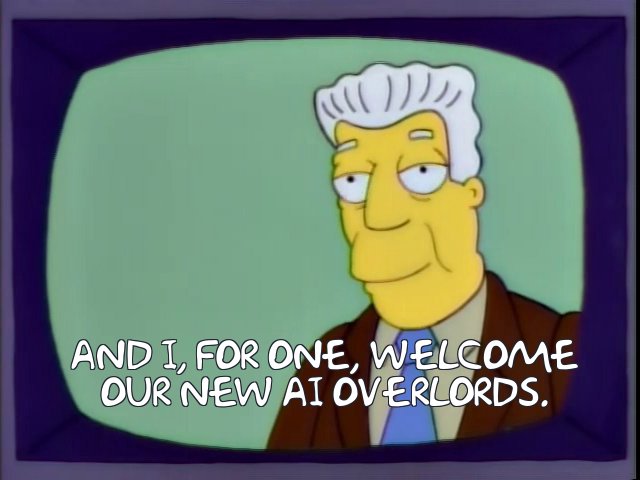
Redo the Tour (archived video)
We have a chance to rediscover what the term "moral compass" might entail.
"And now was acknowledged the presence of the Red Death. He had come like a thief in the night. And one by one dropped the revellers in the blood-bedewed halls of their revel, and died each in the despairing posture of his fall. And the life of the ebony clock went out with that of the last of the gay. And the flames of the tripods expired. And Darkness and Decay and the Red Death held illimitable dominion over all." THE MASQUE OF THE RED DEATH, POE
where the butchers wash their hands before weighing the meat.”
this "great American" dream
The great Amurkan dream--greed
you are giving up control of a tight narrative
Yeah, I know exactly what they mean here. I am trying to create an origin story in #netnarr that continues as we continues. Here it is: https://paper.dropbox.com/doc/Tiny-Coolities-a-Solo-Serial-Networked-Narrative-pelzowvrp4UMLZHV1mmus
I am willing to share the narrative, but who cares. Nobody did when I published. Maybe nobody saw it. Who knows? Maybe Kevin. Maybe Daniel. And I write for myself anyway, the ultimate solipsistic radio tower.
Critics hated it.
Of course they hated it. These guys were just establishment dudes with no wish or need to step out on a limb. Remind me of most of the teachers I have ever worked with. Cozy lesson planners.
I am here, but not sure why. I guess it is connected to #netnarr which I am not really all that connected to. Lots of radio stations broadcasting for attention but for what purpose. Aimless? Idle? And that's ok, but what is the course about? Alchemy? A discredited pseudo-scientific discredited metaphor?
Laptopsandmobiledevicesintheclassroom?
What is your take on this?
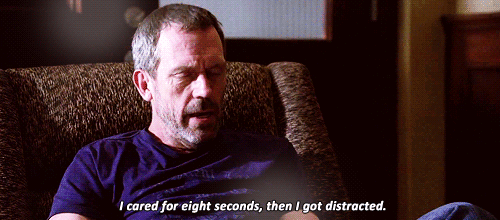



emailetiquette
Let us speak of this together.
AssignmentsandWrittenWork:
How about these? What you want to do? Alternatives?
Iwillrespondtoallemailswithin24hoursduringtheweekandwithin36hoursonweekends
Is this fair?
10:20-11:15p
too close to lunch

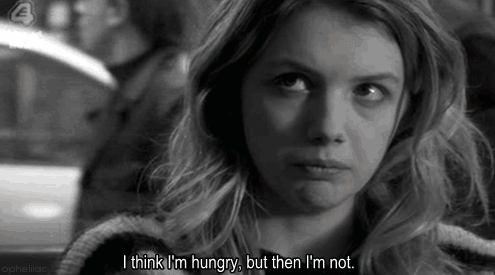


9:10-10:05pm
still 2 early


TerryElliot
Here I am.

Or maybe these folks?

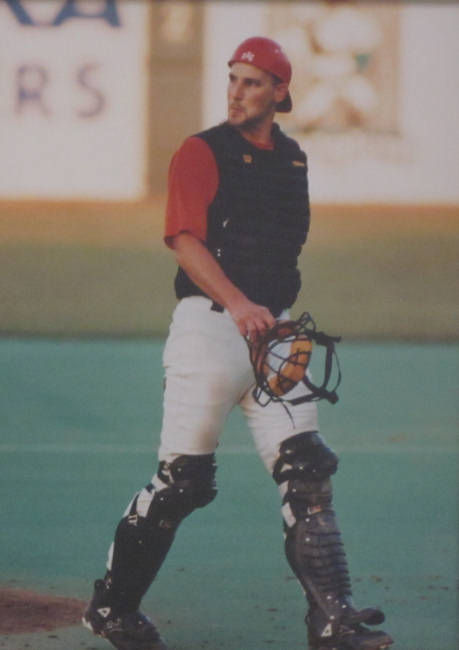

(8:00-8:55am
Have mercy it's 8 am. Get tuff or die.
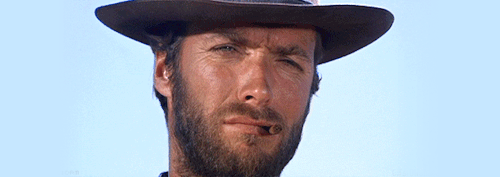
CherryHall,Room12
computer lab--are you bringing your own computing device?
WritingintheDiscipline
What does this mean to you as a member of this class?
The word “narrative” is actually much more slippery than a “story.”
I think we get into a huge problem when we make story or narrative mean one thing. We do this serially in litcrit as different critical stance rise to prominence and then are supplanted by the next new and shiny toy. I love have different stances from which to view and analyze and rebuild. When our take on what constitutes a story evolves into a form then into a critical stance as to what constitutes a good story, then you have something similar to when a metaphor dies and becomes a cliche--dead as a doornail.
mindlessly and maddeningly repeats itself
like life?
A lecture is not a story (unless stories get built into it).
Meta story built into it: characters--you and me, plot--you learn while I talk, conflict--most minds do not work that way.
Haiku for Clouds
The collective noun for a plural of haiku is a 'visualization'. See below:
dovetail
https://www.youtube.com/watch?v=a3V42KwLTeE
I never want to get very far from the world the map or model is based upon. In this case the metaphor of a dovetail should not stray to far from the reality of a dovetail else the metaphor /analogy overextends and breaks.
I have no idea how those two ideas will merge together
I feel a similar leap of faith.
StephenHawking’sandLeonardMlodinow’sbookTheGrandDesign
Tobelievethattruthistrueisnotduetodaring,butduetohumility:thehonestmandoesnotthinkhegetsavetooverreality
Thisbookisatributetothatsecondkindofamateur,folkswhobringgooddatatotheworldinatimewhensocietyisdrowningintsunamisofspinandmisinformation.Theyknowthatitispossibletochangetheworldforthebetterifwerepeatthetruthoftenandloudenough
It is possible. What a great place to acknowledge this leap of faith. An assumption that all we have to do is just keep yammering? Might as well.
accurately,clearly,engagingly,imaginatively,beautifully,andreliabl
Don't forget adverbially. JJ=MSM tool
Fuck that Mr Pressfield.
Another kind of resistance, La Resistance
drowned out in drear
And dolor
https://soundcloud.com/user6587006/roethke-dolor
<iframe width="100%" height="450" scrolling="no" frameborder="no" src="<a href=" https:="" <a="" href="http://w.soundcloud.com" target="_blank" rel="nofollow noopener">w.soundcloud.com="" player="" ?url="https%3A//api.soundcloud.com/tracks/303134020&auto_play=false&hide_related=false&show_comments=true&show_user=true&show_reposts=false&visual=true"" target="_blank" rel="nofollow noopener">https://w.soundcloud.com/player/?url=https%3A//api.soundcloud.com/tracks/303134020&auto_play=false&hide_related=false&show_comments=true&show_user=true&show_reposts=false&visual=true"></iframe>
Blear and loathing
Fear and loathing Blear and loathing. I find myself here waiting on beer that's foaming.
I find myself here
Now here here now Nowhere erewhon Nowhere erewhon Now here here now
Hunter S. Thompson
We both claim Louisville, KY as our home town. He would have been a near contemporary of my father.
delve deeply
Maybe what I wrote was shallow and self-loathing.
I may be hasty in my judgement.
Not a fan of Jung I see.
I have time; it is a priority.
Playing with a quote in iphone app, GifTalk.
We can create space. We can create. We can. We.
”Things can be taught inside of history, not before time, but in time, on time.” (p.222)
What if.. we were moved to a point where we had to believe in what we did and what if carrying on was against whatever?
I think that this is the source of teacher burnout--engines on full tilt but pushing against granite until they flame out.
Yes, we can. We can create Together.
Hanging out, messing about, geeking out, sharing out.
Paulo: “But we can also create space inside of the subsystem or the schooling system in order to occupy the space.” (p.203)
In terms of music space, I think of rehearsal, but rehearsal is made possible by the discipline of practice. They are same coin.
I live in the composition classroom both online and face-to-face. Are they rehearsal spaces? Yes. What other kinds of space can they be likened to?
improv? studio? prompt? daily exercises?
and we begin not to believe any more.”
I think the word 'indifference' is apt here. The opposite of love is not hatred, but rather indifference.
epiphany to know, not intellectually, but to really understand that you (or I or anyone) cannot change another.
Students come to me often horribly changed, perhaps even intellectually disfigured. They openly admit to hating to read and hating even more to write. Hate. They weren't born hating. They came to hate and someone paved that road of change for them.
And in doing that, he or she lives the experience of relating democratically as authority with the freedom of the students.”
I have no idea what this means. Democratic authority in the political agora I understand, but in the classroom and school institution, I find it oxymoronic and without the resolve of paradox.
barely breathe
I still am.
cough compulsively
and listen to this:
unable to draw
Oh yeah?
unable to write
unable to speak
But you can move and hear,
unable to sing
Finally, you can also use our new bookmarklet. You can find it under Preferences - Apps and Extensions and drag it to your browser's bookmarks tab.
I find this to be the best, least "friction-y" way to get stuff into Inoreader.
2016 as The Year of the Serpent.
YUP
aten-year, $30 million effort to enhance the devel-opment of children, families, and communitiesthrough the creation of community-directed infra-structures of services and supports.
Such a small amount for such an important constituency--children.
Would also like to see margin discussion of the forces that led to the creation of the form of the 'conference' and how the new force of virtual connection (whatever that might be) amplifies or dampens the old force. How might all virtual conferences be adapted to F2F ones? Are we seeing a fork in the road here where we are trying to 'shoehorn' the virtual into the real when we should be putting our efforts into all virtual?
interactionscreate a narrative
Interactions create lots of somethings: shared private and public channels, amplification, reduction in sense of loneliness, support. Is this what you mean by narrative? It seems to me those interactions spawn tools and content of narrative. Narrative for me means making sense of what you gather in these informal interactions.
Informal
Very much in line with the 70-20-10 training folk.
Movement
I thought this said "moment" when I first read it. Sometimes it feels like a moment and then it passes.
At the same time, she continues to perfect her craft of furniture-making.
I do not want art for a few anymore than education for a few, or freedom for a few. Wm Morris

The reason for this post is to explore, create, and invite others into varied networked narratives. There are several here.
Adjacencies, adjacent possibles, known, unknown, indecipherable, illegible even: they are all adjacently potentially emergengingly---open.
potential collaborators
A job description from the future: potential collaboration You can play here if you wish as a sortakinda protocrypto semiautonomous opening 'paragraphy' for a networked narrative.
https://docs.google.com/forms/d/e/1FAIpQLSe90tfCQSnVpkFNq8mRQcAai7xa3vuHgrdlJtRiDqGyDF-qag/viewform
And here is the response spreadsheet if you wish to view: https://docs.google.com/spreadsheets/d/1GJP4dKD55YSLrCjMUmHivVIvXNDgM-2ftcAsG8GzH5o/edit#gid=1130978140
Hi, I am not. I come to this a bit later than I wanted to and now that I am here the feeling I get is the same one that Daniel Boone was purported to have gotten when he saw the distant smoke plume from a fire--time to light out for the wilderness. I see the "75" in the little hypothes.is icon and I openly wonder, "Well, what more could I add to this?" I suppose the answer is this and that. First, my voice is different than yours, but that doesn't make it noteworthy. My experience online makes that all too clear. Second, dark matter isn't particularly visible, glial cells proved all but invisible for years, but that doesn't mean they are unneeded. They are needed. And their function is often unheralded in a saga that is sung by the attention mongers. That is my opening salvo in a networked narrative. Heave to, mateys, there may just be pirates off yer starboard bow with gun port lids open and a signal for you to cut yer colors and lay by. Peut-etre?
a moment when we can go a little farther and say something, and there is a moment in which we should listen more to the people.
How nicely he connects the classroom and political gathering. This is how you are both a learning organizer and a community organizer.
the dialecticity between patience and impatience.
A secondary source with more info on this.
<script src="<a href=" https:="" <a="" href="http://hackpad.com" target="_blank" rel="nofollow noopener">hackpad.com="" hPVh1arzwDa.js?format="html"" target="_blank" rel="nofollow noopener">https://hackpad.com/hPVh1arzwDa.js?format=html"></script><noscript>
<div>View Reading Paulo Freire: His Life and Work on Hackpad.</div></noscript>there are levels of knowledge about the facts they already know, which unveil other ways of knowing, which can give us much more exact knowledge about the facts. This is a right that the people have, and I call it the right to know better what they already know. Knowing better means precisely going beyond the common sense in order to begin to discover the reason for the facts.
I liken this to Johari window analysis.
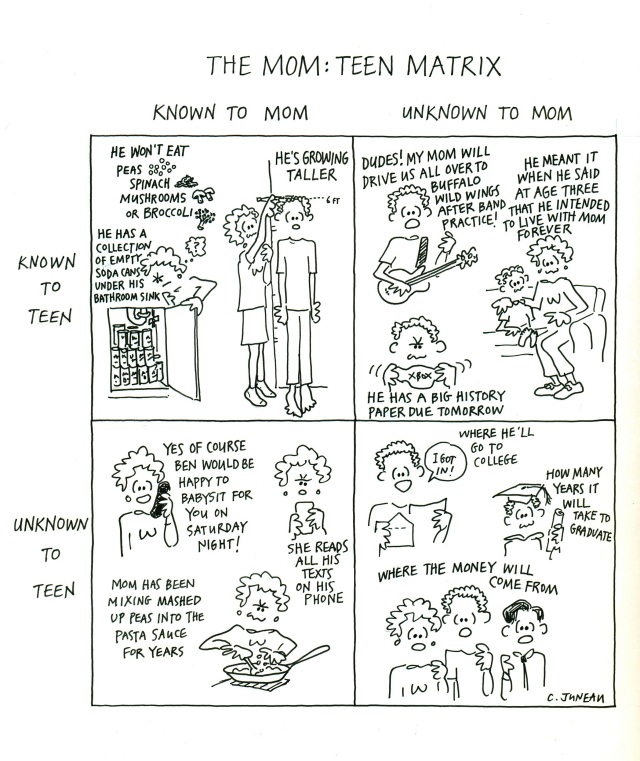
There's no such thing as just being a coordinator or facilitator, as if you don't know anything. What the hell are you around for, if you don't know anything. Just get out of the way and let somebody have the space that knows something, believes something.
Wow! This is a no messing around, everybody's got skin in the game world. I could see this as the climax of a movie.
starting from where people are, to go with them beyond these levels of knowledge without just transferring the knowledge.
I am getting confused as to who is talking. And I consider that to be a very happy problem.
you can lead a horse to water but you can't make him drink. PAULo: Yes. MYLES: This is a problem they deal with in academia by hitting the horse over the head and beating on him till they force his nose in the tub, and just to keep the blows from continuing, he'll try to drink. My system is to make him thirsty, so he'll volunteer to drink.
this is my way of working, of thinking. First I try to make a circle so the issue can't escape
Embodied cognition and praxis here and further down. It rings true and sympathically through me.
Each one with his ignorance.
LOL, each of us must own both what we know and what we don't and especially what we don't know that we don't know.
Or perhaps we need to heed Zizek about the unknown knowns:
If you have a conviction, you have a responsibility to act on that conviction where you can, and if you're doing education, you act on it in an educational context
Is this true?
about their expectations
The less we expect of our people, the less democracy we have.
I am using this chapter without copyright holder permission. If you have issues with my interpretation of 'fair use' then talk to me. I could put password protection on this WordPress page if given a compelling argument--like a takedown notice. But I doubt I will do that.
What I would like to see happen here is not just annotation but discussion outside and through the various wormholes and palimpsests we make in the manuscript. And I would like for there to be curation of the generated annotations into other processes and products: images, gifs, short plays, kinetic poetry, quote boxes, zeegas, and on and on. Bryan said it was beginning to look like a cMooc. Yes, and this is the kind of work that opens up the adjacent possibilities that are the hallmark of complex systems. Let's make infinite play.
he better the democracy
this is the Sanders message before, during and after the electon. For example, he recently visited the HQ for KQED and spoke with students about politics and the recent election
This morning our Youth Advisory Board met with @BernieSanders at @KQED @KQEDNews and talked about issues that matter to them. #2nextprez pic.twitter.com/t6fgTPV9th
— KQED Learning (@KQEDedspace) December 2, 2016
(And yes, you can embed tweets into hypothes.is.)
Practice
Praxis makes perfect
It's hard to even see much of that spark anymore, that so many beliefs have been crushed, negated, that our society is mired with an unbearable weight of cynicism.
I am reading Dave Gray's Liminal thinking. Two quotes that bear on this:
1."The obvious is not obvious.It is constructed....We band together in "obvious clubs" that defend competing versions of reality." (Gray 8-13)
He compares that attention to this:
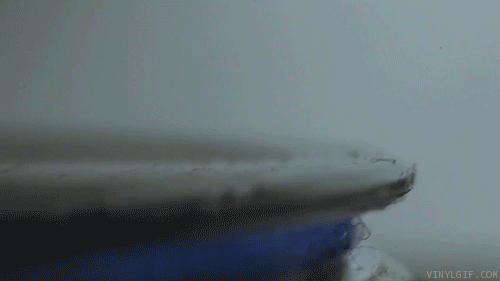
when maybe it should be more like this:

But we did extend a sales tax last election
Yeah, a regressive tax. I am reminded of the Finnish courts who fined a multimillionaire in accord with his net worth
its going beyond pulling the quotes from the book and postulating about education
I am not sure what "beyond" means here. Feels like a judgment, a noting of a failing. I based a lot of my formative teaching years doing exactly that. I would try to find ways to make the quotes work in meatspace. Maybe that's not what you mean by this, but I find any attempt to connect across contexts (known or unknown) to be a winner.
They hadn’t thought about the downsides. These tools offer remarkable empowerment, but there’s a dark side to it. It enables people to do very cynical, damaging things.”
Hence the absolute necessity of fact checking tools like Hypothes.is. Here is a way out: https://blog.jonudell.net/2016/10/30/marshalling-the-evidence/
And here too: https://blog.jonudell.net/2016/10/29/bird-dogging-the-web/
“organise the world’s information and make it universally accessible and useful”
like most mission statements--bullshit. It is a filter so you have always got to be following the filter. In this case no one but a few know what the filter does specifically. It is built to be used therefore it is designed for abuse and misuse.
the proof: an entire page of results
Is the author assuming that most people regard Google Searches as anything more than a result? Gospel? How many people have even a rudimentary understanding of page rank? Whose duty is it make sure they do?
“a-r-e”. And then “j-e-w-s”.
If you flip the words around to "jews are..." you don't get predictive searches. Why? I guess it doesn't think of the words as a question. Check out the related searches at the bottom of my page with this query.
How in the world can these results be so skewed? Is there an active community of antisemitic folks actually looking for self-justification or is this a gaming of the search system?
And a mirror world.
Hint:
Hamlet:
Suit the action to the word, the word to the action, with this special observance, that you o'erstep not the modesty of nature: for any thing so o'erdone is from the purpose of playing, whose end, both at the first and now, was and is, to hold as 'twere the mirror up to nature: to show virtue her feature, scorn her own image, and the very age and body of the time his form and pressure.
Hamlet Act 3, scene 2, 17–24
I have no idea how to do this.
Federated wiki? wikity? chooseth yer own alt-ity?Hackpad with endless wormholes?
It’s actually hard to break out these different points, since they overlap and repeat throughout the section.
Focus shift is very interesting in this interview format. Foreground/background/gestalt. I think that explains why it seems an injustice at time to dissect. Usually when that happens for me I write poetry or create something to translate one whole gestalt into another.
Footnotes.
Oh the face of reasonableness, oh the talking heads of eruditon, oh the sages on the stages--do we have any idea about the opposing forces we are referring to here, who we are facing? These faces are not the slightest bit interested in our sage, reasonable, erudite intelligent colloquy. What they want is to exercise power over us NO MATTER WHAT. I think about this all the time living where I live, surrounded by who I am in Dumbfuckistan. And it is not just my paranoiac mask speaking here. Sometime very soon, much sooner than later, the forces of conversation, reason and smiling/nodding/agreeing heads will see that fascism only cares about satisfying its will to power over others. And it will be too damned late to have a Plan B. And what is Plan B: it is making sure that every day you do something to grab any lever of power around you that will make authoritarianism less likely. Among those levers is reasonable argument, but also unreasonable, passionate giving notice and standing witness. Giving money to help others. Making sure you stand up physically for others. I am a neophyte at doing this because I hate to cause others discomfort, but I am learning to do it.
to criticize and attack them in such a manner that the political violence that has always exercised itself obscurely through them will be unmasked
This is what I try to do here: http://impedagogy.com/wp/blog/2016/12/04/5145/
and here: http://impedagogy.com/wp/blog/2016/12/04/i-wish-my-teacher-knew/
"We let technology into our lives. And now it's starting to control us."
And every bit of tech cuts both ways it reveals the location of hidden animal can be tweaked to endanger humans as much as it is used to save endangered species? "Yes," he said, "so sadly, yes."
should
Nonono. A 1000X no. Haven't we had enough "shoulds" decontextualize or not? I will have none of it. And what the fuck does 'fully developed' mean. That sounds suspiciously like 'best practice'
Thanks for setting sail with me.
Daniel does a lot of great work
CURATION BY CALLOUT
try to find connecting points
CURATION BY THREAD
Trying to pull out common threads. Also, trying to pull out substantive differences.
In the interest
CURATION WITH OTHER MODES (image, text in image, gif, video, sound files)
am removed from the anchor text
CURATION WITHIN THE ANNOTATION FRAME
CURATION OUTSIDE OF THE ANNOTATION FRAME
rough take
CURATING BY SUMMING UP
to each other
CURATION WITH EACH OTHER
reacting to ideas
CURATION BY REACTION
It’s also invisible, to some degree.
CURATING BY SHARING (PUBLIC, UNLISTED, and PRIVATE GROUPS)
Private annotations for oneself and for private groups are also possible. Nice. Fine grained. Along with tagging, there are many possibilities to send annotations in multiple channels within Hypothes.is (private groups, public notes, tags, social sharing).
These annotations are for me an experiment in meta-curation, curating about curation. I hope that we can draw some lessons in how to curate from Kevin's post. It would be great to do this elsewhere and then draw our discoveries together on Hypothes.is.
In lieu of starting that project I have begun a private group where we can gather together curatorial strategies. Here is a link if you want to join Curation Strategies: https://hypothes.is/groups/j3eoYn2b/curation-strategies
It might also be helpful to come up with a set of specific (curation strategies) and generic tags (curation) that we can search for on Hypothes.is here: https://hypothes.is/stream?q=tag:curation
Sifting
CURATING BY SIFTING
Technique #1: thinking of the marginalia as vein to be mined for nuggets and gems. Begs the question: what criteria do we apply to the vein so that we can sift stuff?
Notable quotes (why notable?) Main ideas Worthy figurative language (metaphors, symbols, analogies) New wine. Old wine in new bottles
Something happened in this thread, Troy. It was very brave of you to admit that you might be part of the problem. Hailing failing, as Richard Saul Wurman put it, is something we do not do well or at all in the US. We need anonymous places where we can go and admit what we have done in the name of pedagogy. I am not giving up. I note that neither are you. It is a very weird job we have. It is a combination of concierge, facilitator, and beater. We beat the ground for the pheasant. The pheasant explodes in a liftoff of feather and muscle. What do our students do? Maybe it is a crappy metaphor, but the idea of putting food down where the goats can get to it no longer works for me either. We need to help them hunt and eat their own game. It is a messy business. Troy, you are doing yeoman's work. You care. And you inspire. KEEP ON!
Media literacies as an educator has been what I *do* for the better part of twenty years.
I have annotated elsewhere about how any talk of 'education' is politically situated.
"It is time to give up on the idea that we are doing students a service by limiting the range of writing experiences we offer."
Often students don't get a chance to become excellent or at least proficient in a particular type of writing in school. Outside of school they embrace thousand of tweets and texts and instagrams and snapchats. They choose to limit themselves to a range of writing activities outside of the classroom. They get very competent at them. Some are even inspiring. I would not worry about limiting their writing experiences so much as their purposes and their audiences.
Just noticed that this is article is over three years old. Perhaps we need a newer one or we need to conduct one ourselves.
I would say that digital writing "generatively complicates" the art of teaching writing, but that we shouldn't let the variety of new technologies overwhelm us
Interesting and useful analytic frame for consideration of the difference between complexity (which cannot be managed) and complicated (which maybe you can).
heuristic
Not sure if this is a heuristic or a checklist. I think of heuristic as something like George Polya described in this book, How to Solve It. I would love to have more of these kinds of rules of thumb or better yet a path toward creating ones own custom rules of thumb.
"We have all these devices and technologies available to us. How are we being intentional? How are we being thoughtful -- taking time to craft writing with these digital tools?"
Teaching at the university level with mostly at-risk students has made me question the majority of the intentional work (read as syllabus, curricular, objective-driven). It produces bad products and even worse processes. My question is whether or not this result is systemic.Is the system a "bad work' machine? Will it generate crappy product through crappy processes even if well-intentioned? I think that it is easy to forget as we try to make a digital tool play nice under the status quo that all of our teaching work lives inside of a political spell cast long ago and apparently well warded from real change. Being intentional is not enough. Just look at the public school horror that Michigan has become with its utterly unaccountable charter schools. Those systems are absolutely intentional and deliberate in their hierarchy.
I always wanted to think that I could lay parallel tracks in my classroom, separate and better than what the system provided. That was a fool's paradise. Every tool and idea I taught should have been judged by its capacity to enable the adjacent possible, to open affordances, to help them build their own bullshit detection devices. I should have done more than just permit infinite play. i should have made discovering passion AND translating that with palpable precise skills into something useful and fun.
I had the model in front of me the whole time--my own children's unschooling. I would like to think that I did some of that unshooling on those parallel institutional sidetracks, but I don't think my intent was clear or deliberate enough. I think that I loosed them into the world unprepared for the systems of political inequity and fear that are there.
So...in the scheme of things (i.e. the status quo institutional imperatives already at work in education from K-University) the issue should not be about how digital writing is crafted, but how purpose is invoked. Each learner is an invocation. Whatever tools and ideas and paths we use, they must all serve the goal of navigating the inner world of personal purpose and the outer one of political power. We must situate anything we do within a larger and potentially more controlling context.

"There is not a writer in our classrooms today who will not be producing something with a digital writing tool in her or his lifetime."
Almost all of the tools that I think most folks put in the digital writing camp are binary doppelgangers of their analogues. For example, Power point as used is mostly a flip chart with more bells and whistles. Note taking apps are 3X5 cards with a digital twist. Even hypothes.is is just marginalia with a social bent. So what I propose is that what we teach is how to apply ANY tool to the task at hand. What that means is that we need worthwhile work for our students and we need to do that work using the tools at hand. And by 'tools' I mean digital, analog, and any other that can be pressed into the larger service of gather, making sense of and sharing the problems and questions and solutions and stories of the world.
Students need intensive help with writing
And abiding purpose And deep practice And encouragement And more than anything else--time to make it right and well.
my advice, in short --
Some sage advice from that modern parable and paragon of the condition humaine, The Big Lebowski
They keel over like canaries in coal mines filled with poison gas, long before any robust types realize that any danger is there.
No they aren't. Real artists are not fragile at all. They can create. They have a form to pour themselves into for when the fascists kill them. But they live on. Anti-fragile. Alive. In remembrance. Their breath being breathed in others' lungs.
Please watch what I mean through my surrogate, The Boss:
the need to strategically mobilize to protect American freedoms and identify and address the needs of people who are suffering in zip codes throughout the United States, and the world, is more acute than ever.
Yes, we need to keep this focus where it has always needed to be regardless of the party in power.
let's remember that unlike all previous walks into the doom did not have tools of connection and lifelines that are available to us now.
It is a great time to be alive and fight and build. Cross the streams!
We are not free if we subject others to slavery.
https://www.youtube.com/watch?v=eFkmRp_G2uo
Well you better listen my sister's and brothers, 'cause if you do you can hear There are voices still calling across the years. And they're all crying across the ocean, And they're cryin' across the land, And they will till we all come to understand.
None of us are free. None of us are free. None of us are free, one of us are chained. None of us are free.
And there are people still in darkness, And they just can't see the light. If you don't say it's wrong then that says it right. We got try to feel for each other, let our brother's know that We care. Got to get the message, send it out loud and clear.
None of us are free. None of us are free. None of us are free, one of us are chained. None of us are free.
It's a simple truth we all need, just to hear and to see. None of us are free, one of us is chained. None of us are free. Now I swear your salvation isn't too hard too find, None of us can find it on our own. We've got to join together in spirit, heart and mind. So that every soul who's suffering will know they're not alone.
None of us are free. None of us are free. None of us are free, one of us are chained. None of us are free.
If you just look around you, Your gonna see what I say. Cause the world is getting smaller each passing day. Now it's time to start making changes, And it's time for us all to realize, That the truth is shining real bright right before our eyes.
None of us are free. None of us are free. None of us are free, one of us are chained. None of us are free.
Written by Barry Mann, Cynthia Weil, Brenda Russell • Copyright © Sony/ATV Music Publishing LLC, Universal Music Publishing Group
I engage in intellectual pursuits
I engage in beastly pursuits.
When would you use Twitter instead of a more private forum?
How is this not a skill? Distinction without a difference.
Why and how was this post chosen to annotate?
"The perfect unfairness of this is that when we limit another’s voice, we create an ecosystem reliant upon limitation. And that’s the ecosystem in which we now swim. We can’t ask for freedom to take risks, to follow our own curiosity — to be scholars — if we don’t offer that freedom to others."
I have no effing clue here. Perfect unfairness? limit another voice=censorship or something more insidious like ignoring or falsely acknowledging? ecosystem? WTF? Why are we swimming in context? Why can't we be rhizoming in context? Or quicksanding in context? The fact of the matter is that the wealthy and the powerful CAN AND DO demand freedoms that none of the rest of us have--privacy for example.
How many students have the time or the money or frankly the interest to attend conferences?
Mostly none at the level I teach at. And frankly,unless the conferences are just plain interesting instead of sit&git or might help them make valuable connections, why bother.

students
losers
professionals
sociopaths
teachers
clueless
WHAT ARE YOU?
What are you?

What are you?

[.........................]
more Ahabs and fewer Queequegs
[................]
Moby Dicks
[............. ]
disaffected poor rural white whales
Youth born or living in high poverty have fewer people in the family, neighborhood or school who model the wide range of careers youth might aspire to, or who help kids build study habits and experiences that enable them to "do well in school".
Is this something we should be talking about?
What do you think?
I have never had a more beaten passle of students this semester than any other in my 20 years+ of teaching. I am just now noticing how badly the worm has turned. This has been a slow process. A gradual desuetude of the house of higher ed.
The Dude shuts the door on the old man’s bellowing
His answer is already in his head. Just grab another rug. Problem solved.
Get a job, sir!
A solution that the Man always wants--wage slavery and mos def not a replacement rug.
Get a job, sir!
Faux respect.
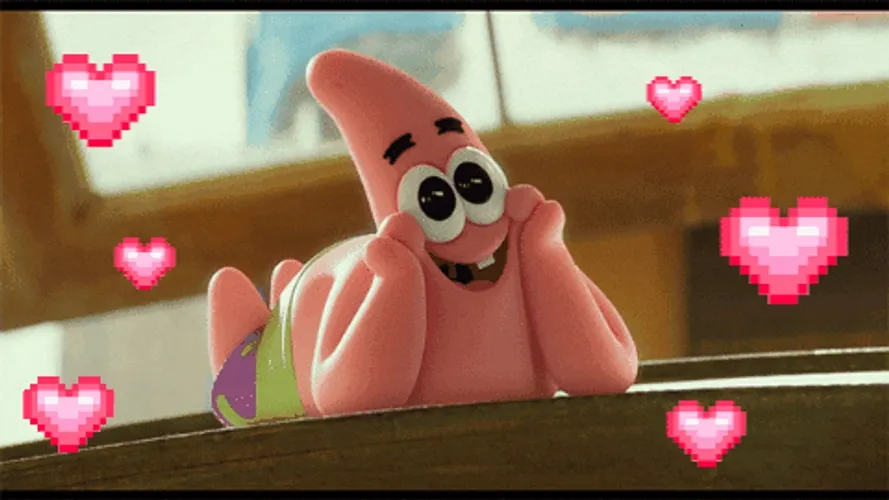
Innovating — changing to make something better
I divide innovation (and boy do I have issues with this word especially with Christenson, cf, Jill Lapore's http://www.newyorker.com/magazine/2014/06/23/the-disruption-machine?currentPage=all) into sustaining and disruptive elements. I do not think that innovation connotes a generic good. It can be good or bad, positive or negative or both or neither. For example, if learning management systems allow us to innovate in ways that allow us to create a hypersurveillance state in the classroom or the school I think of that as a sustaining innovation, but mos def not positive. Or I think of digital annotation in the service of trolling and hate speech to be a destructive innovation. The idea of innovation as solution is a destructive one, but dominant among Silicon Valley technocrats. These folks have a vision of the learning world (and by these people I refer to Gates, Peter Thiel, charter schoolists, and Ayn Randian autodidacts of all stripes) that has a fascist, true believer stripe a yard wide and a mile deep. Their brand of tech solutionism is truly innovative, but not something better. I don't mean this sound so damned disrespective of your point of view here because I see that you want only a particular kind of humane and limited tech. We need that kind of limitation but I also think we need the uglier rhetoric of pushback, something I love so much about Diane Ravitch's conversion experience as she writes about in her blog. She pulls no punches because she knows the innovators who oppose her don't fight fair.
grounds authentic engagement
Words are such frail reeds and jargon is the frailest of the frail. We are not gears to be engaged by clutch and transmission. Why is there such a profound abstraction within the hiearchies of education. It seems as if these same folks are the first to leap from the fire of the classroom into the cozy confines of administration and abstraction. Engagement is not a listicle and certainly not way to manage complexity. I know I sound begrudging and sour here, but I really don't fully trust anyone who speaks in the ungrounded eduspeak of "learning experiences", "high levels", "authentic engagement", "deep teaching", and "cognitively engaging environments". And judging by your next comment, neither do you. And, truth to myself, I find myself as guilty as I accuse others to be, but at least my bs-0-meter is fully functional and self-referential.
Teachers implementing technology can guide students in these possibilities
And they can be guided in return...if they only ask.
The modern system of retail pioneered by Gilman — distant large-scale production facilities coupled with local human-scale consumption environments — was the first piece of what I’ve come to think of as the ‘American cloud’: the vast industrial back end of our lives that we access via a theatre of manufactured experiences. If distant tea and coffee plantations were the first modern clouds, A&P stores and mail-order catalogues were the first browsers and apps.
Tis profound connection here.
Courage is love’s miraculous face. It achieves its miracles through transformation. It allows the impossible to become possible; the unendurable to be endured; trust to be renewed; and the unexpected to become the inevitability that opens you to unprecedented insights about who you are, about what life is. When courage stirs, it delivers the strengths you need but didn’t know you had
Drivel as abstraction, abstract drivel.
instant connectedness
should we have a set of words that describe the gradations of connection in online communications? Contact might be the least connected and collaborative might be the most? Connection is not a monolithic word. It is damnably nuanced. It has both negative and positive connotations. What are we to do?
Focusing on the learner, not just the learning, shifts the focus to a larger moral imperative to embrace the opportunities to educate and empower the students in our schools and classrooms in powerful ways.
I am sorry, but this jargon sticks in my throat. I don't know what 'larger moral imperative' means. It seems to me that a smaller moral imperative is still an imperative, neither big nor small. This is what kept me from reading all of Couros's book. Too much jargon. I know it is a powerful personal bias on my part. I wish it wasn't so but there you have it. I kept wanting to ask him, elaborate or give me a fer instance or I need a concrete example. School is nothing to me without the concrete. Abstraction is a tool for seizing power or so it has come to mean that as I have experienced it.
Why blog?
HOMAGOSO
to become “distinguished”
I have absolutely no desire to become distinguished or proficient or any other measure other than helpful and serving others.
Get feedback, and keep learning.
I am thinking here that we learning by crossing boundaries and barriers. We reflect outside of the boundary (blogpost/tweet/FB) and we reflect inside the boundary (self-thoughts, private journals). The learning happens for me when I cross the margins and borders. If the boundary is impermeable, well...no learning. This is the part of connected learning theory that I would like to look at more--permeability and community and connection and learning. Or to be a little more legible, the necessity of a commons to learning.
Perhaps teachers could “learn twice.”
Reminded for some reason of carpenter's adage: measure twice,cut once Reminded of the question in Crhis Offut's short story, "Sawdust": where does the sawdust go in a math problem? Reminded of Thoreau's observation about wood--it warms you twice, once when you cut it and also when you burn it.
"socialize gains and limit losses"
lots of paths of least bad effect and some good effect
And more communication is not the answer (at least not the whole answer).
An astonishing throwaway observation that fits in with my own recent interest in how even the atomic level of the net, blog posts, can be generate so damned much signal that it becomes big noise.
herd the various knob-turnings/tweakings in a chosen direction.
reminds me of the cliche "herding cats"
grok
puhleeeeze, stop using this non-word.
scale-effects blindness
Another term of art that I did not know but which makes sense especially in terms of the kind of work that needs to be done after the initial push of work on any project or discipline.
Why's that company so big? I could do that in a weekend
Rather marvelous exploration here especially near the end where we get the telling binary of "work" v "happy path". Work is error correction. Happy path is...well, it is the raison d'etre for the project. It is the thing that once done is thought forever done. T'aint necessarily so.
In a complex system, the cumulative effect of a large number of small optimizations is externally indistinguishable from a radical leap.
Educating for Democracy in the Digital Age
high proportion of edspeak here:
Initiative fully leverage potential address engage opportunity structure students’ commitments and capacities leveraging best practices civic learning opportunities action steps impact
Powerful parables work.
The pupils of the Tendai school used to study meditation before Zen entered Japan. Four of them who were intimate friends promised one another to observe seven days of silence.
On the first day all were silent. Their meditation had begun auspiciously, but when night came and the oil lamps were growing dim one of the pupils could not help exclaiming to a servant: "Fix those lamps."
The second pupil was surprised to hear th first one talk. "We are not supposed to say a word," he remarked.
"You two are stupid. Why did you talk?" asked the third.
"I am the only one who has not talked," concluded the fourth pupil.
"empathy hat"
I thought this said "empty hat" at first and then it morphed into "empty heart" and finally into "empty art". What does this have to do with empathy hats? It does not follow. Yet it does follow "as the night the day, Thou canst not then be false to any man."
What does it mean to develop a "digital identity", find your "voice"?
It means, it signifies, it is without praise or condemnation what it is.
Well you better listen my sister's and brothers, 'cause if you do you can hear There are voices still calling across the years. And they're all crying across the ocean, And they're cryin' across the land, And they will till we all come to understand.
None of us are free. None of us are free. None of us are free, one of us are chained. None of us are free.
And there are people still in darkness, And they just can't see the light. If you don't say it's wrong then that says it right. We got try to feel for each other, let our brother's know that We care. Got to get the message, send it out loud and clear.
None of us are free. None of us are free. None of us are free, one of us are chained. None of us are free.
It's a simple truth we all need, just to hear and to see. None of us are free, one of us is chained. None of us are free. Now I swear your salvation isn't too hard too find, None of us can find it on our own. We've got to join together in spirit, heart and mind. So that every soul who's suffering will know they're not alone.
None of us are free. None of us are free. None of us are free, one of us are chained. None of us are free.
If you just look around you, Your gonna see what I say. Cause the world is getting smaller each passing day. Now it's time to start making changes, And it's time for us all to realize, That the truth is shining real bright right before our eyes.
None of us are free. None of us are free. None of us are free, one of us are chained. None of us are free.
"My humanity is bound up in yours, for we can only be human together."
shared video of Vivaldi's Gloria.
A couple of latter day "Gloria"
For me and many the only way out is through. For me it was through a postage stamp of ground that even after 30 years I am only on a nodding acquaintance with.
It has taken me this long to discover only this and these very littles: https://www.youtube.com/watch?v=vsu_dCr2VGg
It is a privacy of sorts: this page, my thoughts, these words.
Isn't it pretty to think so? Who owns your blog? Who mines your blog? Who owns the memory spoor that is your blog? The googazonbook knoweth.
Does God read crude graffiti?
God is the Panopticon. Her commandments are the graffito of our lives made cog-like in our mind's gearing. Lock the gates.
"The Panopticon must not be understood as a dream building: it is a diagram of a mechanism of power reduced to its ideal form." Michel Foucault.
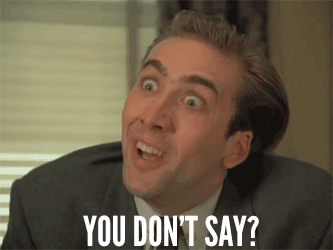
Greenwald demos why he is so important.
I am reading your post backwards because I can.

playing with Canva before taking the time to watch video tutorials. So I recommend you do just that – watch the tutorials to save time and frustration.
Canva
Love the font. I don't remember seeing that one on Canva before.
speaking truth plurally.
in the Renaissance
Yes, in the Renaissance, but what about now. What constitutes "thinking and speaking well" at this moment? Does it also included Instagram/Snapchat/Cartooning/Meme-ing/Soundclouding/Zeega-ing/etc?
apparently rigid educational system could, paradoxically, induce liberated thinking.
This is an impossible assertion to prove or disprove. Don't know where you go from here in a conversation other than to say perhaps Shakespeare was the hardy outlier who was liberated in spite of not because of.
changing the conversations
shuffle the deck
I pointed out
Blindspots revealed?
None of the conversations were scripted, programmed or determined by myself (the teacher)
understand
The people were all engaged
observe
informal meeting of the minds
anti-strategize with loving chaos.
Dancing in the wild.
And dance.
moved from group to group
cross fertilize, put aside your discipline.